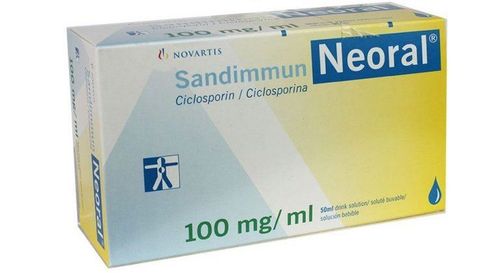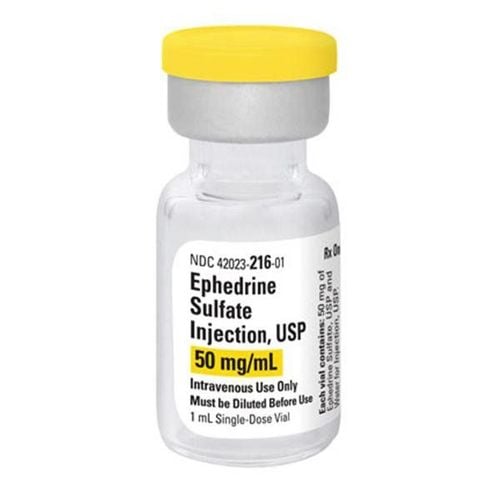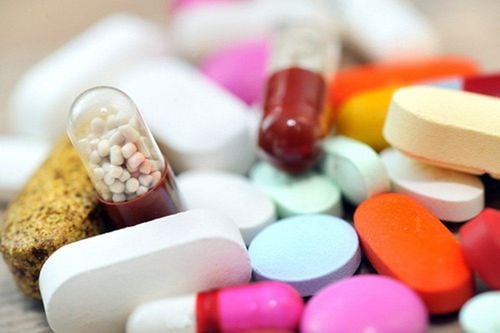This is an automatically translated article.
Cytogam is the product of choice and is effective in many countries around the world. Learning about Cytogam before taking it will help bring about effectiveness and minimize the possible side effects.1. What is Cytogam?
During an organ transplant, the body's immune system is weakened to prevent the risk of rejection of the new organ. However, a weakened immune system increases the risk of serious and potentially fatal cytomegalovirus infections. Cytogam is made from the blood of healthy people with high levels of antibodies that help fight cytomegalovirus.
Therefore, Cytogam is often used together with the antiviral drug ganciclovir to prevent serious cytomegalovirus infection in organ transplant patients such as kidney, heart, liver, lung, pancreas transplants.
2. How to use Cytogam properly?
Proper use will help increase the absorption of active ingredients and Cytogam will promote maximum effects, ensuring effective treatment for users. Therefore, patients should pay attention to the following notes when using Cytogam:
Cytogam is used by slow intravenous infusion. Cytogam dosage can be adjusted, changed, guided by the doctor based on the health condition, age, gender and response to treatment of each patient. Usually, the first dose is usually given within 3 days of the transplant, followed by subsequent doses given every 2 to 4 weeks of the previous dose. The use of Cytogam near or far from a meal does not affect the effectiveness of the drug.
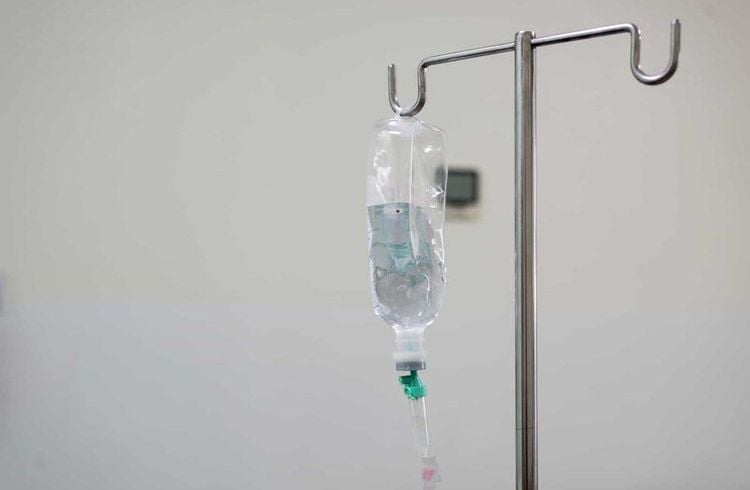
Thuốc Cytogam được đưa vào cơ thể qua đường truyền dịch tĩnh mạch
3. What are the side effects of Cytogam?
Besides the therapeutic effect, the use of Cytogam can lead to unwanted effects. Common side effects of Cytogam include: flushing, chills, cramps, back pain, joint pain, fever, nausea, vomiting, pain, redness, and swelling at the injection site may also occur.
Tell your doctor right away if while taking Cytogam you experience any serious side effects including:
Flushing, chills, cramps, back pain, joint pain, fever, nausea, vomiting or difficulty breathing. When these signs appear, it may be necessary to stop the infusion or adjust the infusion rate slower and monitor and observe the patient's body response. Easy bleeding and bruising. To avoid the risk of bruising and bleeding during treatment with Cytogam, you should avoid using sharp objects such as cutlery, razors, nail clippers, needles and should not participate in physical activities. strong as sports with a competitive nature, direct contact, easy to cause injury. Fast, irregular heartbeat. Unusual fatigue. Signs of kidney problems such as change in the amount of urine, pink or bloody or foamy urine. Sudden weight gain. Rarely, Cytogam is made from human blood, so it may contain substances that can cause an infection with symptoms such as a sore throat, persistent fever, yellow eyes, yellow skin or dark urine. Cytogam treatment can cause meningitis syndrome within hours to 2 days after use with symptoms such as severe headache, stiff neck, drowsiness, high fever, sensitivity to light, eye pain or severe nausea or vomiting. Lung problems can occur 1 to 6 hours after treatment with Cytogam. Severe allergic reactions to Cytogam are very rare with symptoms including: rash, itchy face, swelling of the face, itching or swelling of the tongue and throat, severe dizziness, feeling short of breath. Cytogam may affect the results of certain tests, such as tests to check kidney function, to check the amount of urine. Therefore, patients who go to the doctor should let the testing staff and doctor know if they are taking Cytogam.
This is not a complete list of possible side effects when taking Cytogam. While taking Cytogam, if you notice other unwanted effects not listed above or if any of these side effects are severe, persist or get worse, stop taking Cytogam. and immediately notify a doctor or pharmacist for advice on a timely, correct and safe treatment plan.
Before using Cytogam, tell your doctor or pharmacist a history of allergy to immunoglobulin products, a history of certain immune system problems such as immunoglobulin A deficiency, monogamous disease strain, diabetes, high blood pressure, high cholesterol, migraine, sepsis, kidney disease, severe dehydration, vaccination history. Thereby, the doctor or pharmacist will advise the user on a more effective and safe treatment.
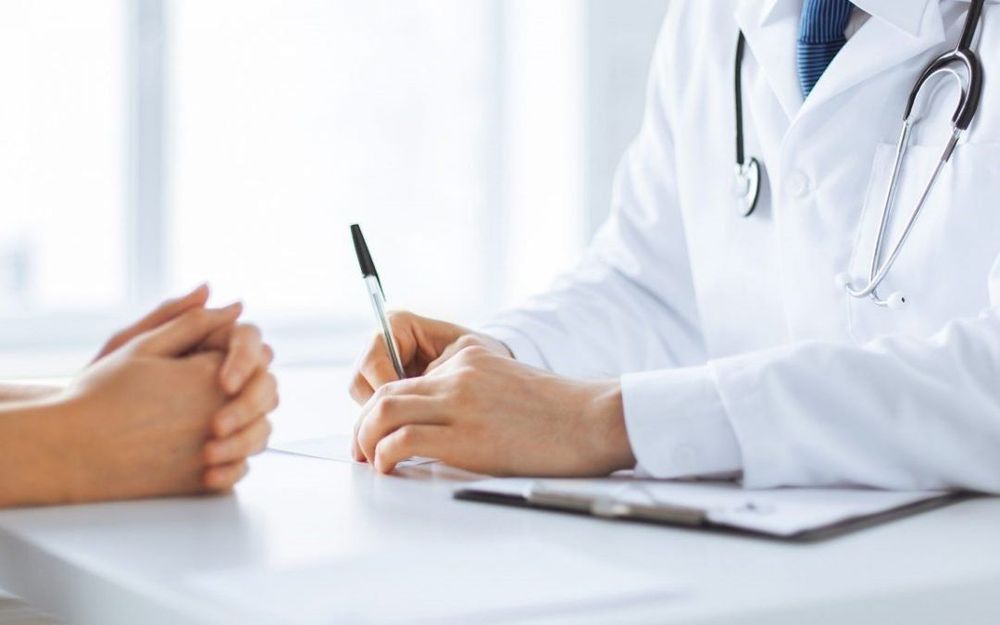
Người bệnh cần được thăm khám trước khi sử dụng thuốc Cytogam
4. What drug interactions can occur when taking Cytogam?
Interactions between Cytogam and other drugs when taken at the same time or at a close time can affect each other's activities, effects and effectiveness or even increase the risk of side effects severity of each drug. Therefore, before using Cytogam, tell your doctor about all other medicines and products you are using.
Products that interact with Cytogam that increase the risk of side effects or increase the elimination of Cytogam from the body leading to reduced effectiveness of treatment include: drugs that can harm the kidneys such as gentamicin or other aminoglycosides, diuretics such as furosemide.
5. What are some other notes when using Cytogam?
The abuse of Cytogam can lead to an overdose and serious symptoms such as fainting or difficulty breathing. If you have missed a dose of Cytogam, do not use it as soon as you remember, but ask your doctor or pharmacist when to take Cytogam.
To prevent Cytogam from being degraded leading to quality deterioration and possibly losing its required therapeutic and safety effects, you need to store the medicine in a refrigerator at a temperature between 2 and 8 degrees Celsius. Opened vial Use within 6 hours as directed, do not place the medicine in the bathroom, and keep it out of reach of children or pets.
In order to ensure safety and avoid side effects of Cytogam drugs, patients should carefully read the instructions before using or follow the instructions of the doctor or pharmacist. In case the use of Cytogam drug is not effective, the patient goes to the medical facility for examination and treatment.
Vinmec International General Hospital always receives, handles and solves all health problems. If when using Cytogam, customers have any questions can go to the hospital to be examined by a doctor for appropriate indications for drug use.
Please dial HOTLINE for more information or register for an appointment HERE. Download MyVinmec app to make appointments faster and to manage your bookings easily.
Reference source: webmd.com



